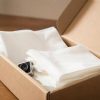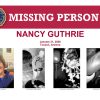Best known as half of the twin-presenter duo of CBBC’s Operation Ouch!, Dr Xand van Tulleken’s impeccable credentials – a medical degree and qualifications in public health and tropical medicine – have also seen him front documentaries on everything from male suicide to the science of dating. But earlier this year he found the tables turned when he caught Covid while he and his brother Chris were making a programme on the pandemic.
Being a doctor didn’t stop him panicking. “I was properly anxious, and frightened at the prospect of spending two weeks completely on my own when I was ill,” he told me. “I was quite tearful speaking to my twin about it all.”
By the end of week one, he thought he was out of the woods. Then, on day 12, he woke with his heart racing: a condition called “atrial fibrillation”. He went into hospital, where doctors stopped and started his heart to regularise its rhythm. He has had this done three times since, once while cameras were rolling as his brother looked on during filming for their BBC documentary Surviving the Virus.
How did it feel to go so publicly from presenter to patient? “I had all the anxieties you’d expect – I didn’t want to look frail or vulnerable on the telly,” he admits. But he’s glad he did it, and not just because it might reduce the stigma around illness: “My favourite thing was seeing people replying to things on social media about Covid being made up with ‘why don’t you ask Dr Xand?’ Because even as someone quite young, I had a relatively severe experience of it.”
The producer sent over a rough cut, warning it was tough viewing. “We didn’t believe him, we thought we’re both doctors, we’ve seen this stuff before, so we had Mum and Dad over and put it on, and everyone was in tears. I found it hard to watch, mainly because I didn’t like seeing Chris upset.”
It also can’t have been easy doing lockdown while living alone and recovering from Covid, with a tough work schedule thrown into the mix: he filmed a whole series of Operation Ouch from his kitchen, and co-presented BBC1’s Health Check Live. He survived it by getting to know his neighbours better – including the squirrels in his garden, whose appearance during our interview prompts him to jump up and feed them (“I can’t have a cat or a dog, so they’re my pets!”). But the hardest thing was not seeing his 11-year-old son, Julian, who lives in Canada, as much as usual. “At this point we’d normally be talking about Christmas but it’s possible this year I won’t get to spend it with him.”
His own experience of Covid has reminded him how vulnerable adults can be to new viruses. Children’s immune systems are designed to respond vigorously to viruses, but by the time we reach adulthood most of us have been exposed to the common ones so there’s less need for an all-out response; it’s why adults get chickenpox so much worse. “Some long-Covid symptoms will be specific to coronavirus but it is possible that some of what we’re talking about is the effect of new virus exposure in adults, something we’ve been aware of for a long time but which has been neglected by medicine,” he explains.
He stresses the need for greater investment in rehab services where people might spend weeks recovering after leaving intensive care.
What aspects of the pandemic response does he think have gone well? “The British public have done an extraordinary job in doing their best to slow the spread of the virus,” he says. Less so the government. “My work in overseas aid taught me that so much of public health is good information, but the government has got it so wrong,” he says.
Blaming the public for rising infection rates after encouraging everyone to go into the office “felt like gaslighting”, and he says the hypocrisy of government adviser Dominic Cummings in failing to apologise when caught breaking the rules undermined the sense we were all in it together.
He rails against the government’s dogmatic approach to science, for example the early insistence that hand-shaking was safe. When he was on Question Time in early March, he was taken aback when fellow panellist Matt Hancock reached out his hand. “I said ‘I’m not really shaking hands at the moment.’” He says Hancock was adamant it didn’t spread through handshakes. “I know how these sorts of viruses spread, but I don’t like social awkwardness so ended up shaking his hand!” He finds ministers’ claims they are “following the science” deeply problematic: “No scientist in the world can tell you whether it’s worth closing down parts of the entertainment industry; that’s an inherently political decision.”
He is also scathing about the three scientists who penned the “Great Barrington declaration”, which argued we should shield the vulnerable but that life for everyone else should go back to normal. “I’m genuinely interested in the question of at what point we’ve gone too far with social restrictions; whether it’s isolation or poverty, there are terrible trade-offs. But I felt so frustrated that those scientists turned the most important question of a generation – how we respond to respiratory virus pandemics – into the most poorly thought through, unkind document, launched by a thinktank funded by the Koch brothers.”
If a Covid vaccine comes, it will be important to encourage uptake; how can scientists address fake news from anti-vaxxers? Xand says that after he and Dr Chris noticed one or two people occasionally getting up and leaving the Operation Ouch! live show during their segment about vaccines, they changed their approach. “The thing society normally does is say ‘you’re so stupid’ to parents who believe the conspiracy theories. But, actually, large pharmaceutical companies, western governments and the medical profession have all given some communities in particular reasons not to trust them over the years.”
He believes medics need to communicate better with sceptical parents. “If you are in the situation where the only way of saving children was compulsory vaccination, then I guess I’d be in favour of it. But to get to that point, you’ve screwed up so badly.”
There’ll be no shortage of opportunities for Xand to talk directly to the public: he’s the resident doctor on BBC1’s new show Morning Live, which starts tomorrow. “I want the medical bits to feel reassuring and optimistic rather than gloomy,” he says. A tough ask during a pandemic perhaps, but having just spent an hour in Xand’s bubbly company, I reckon we’re in safe hands.























































Свежие комментарии